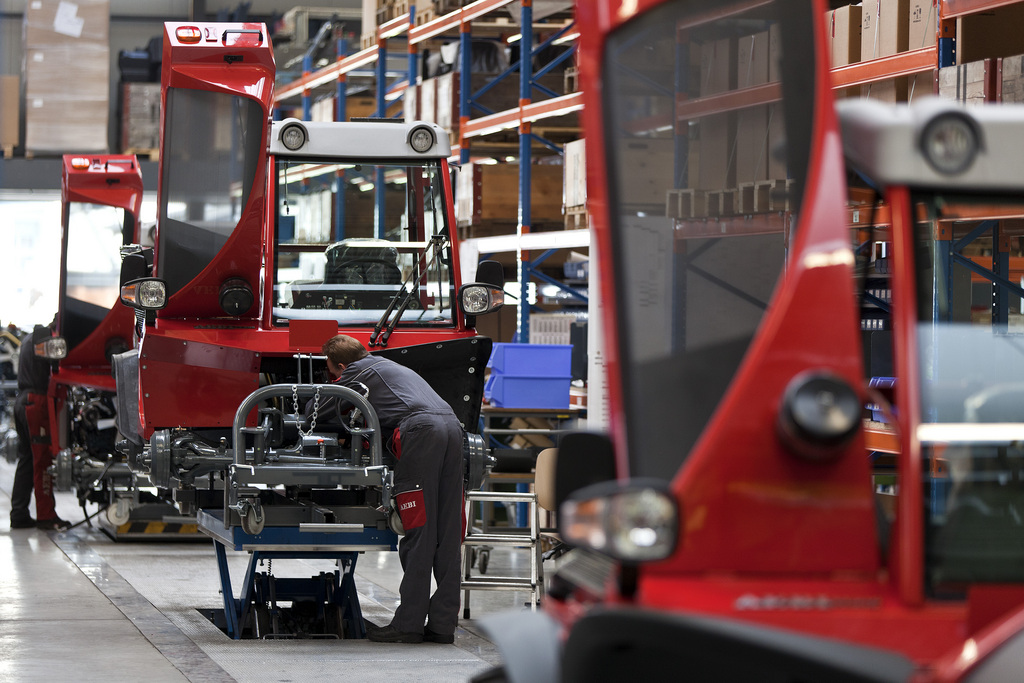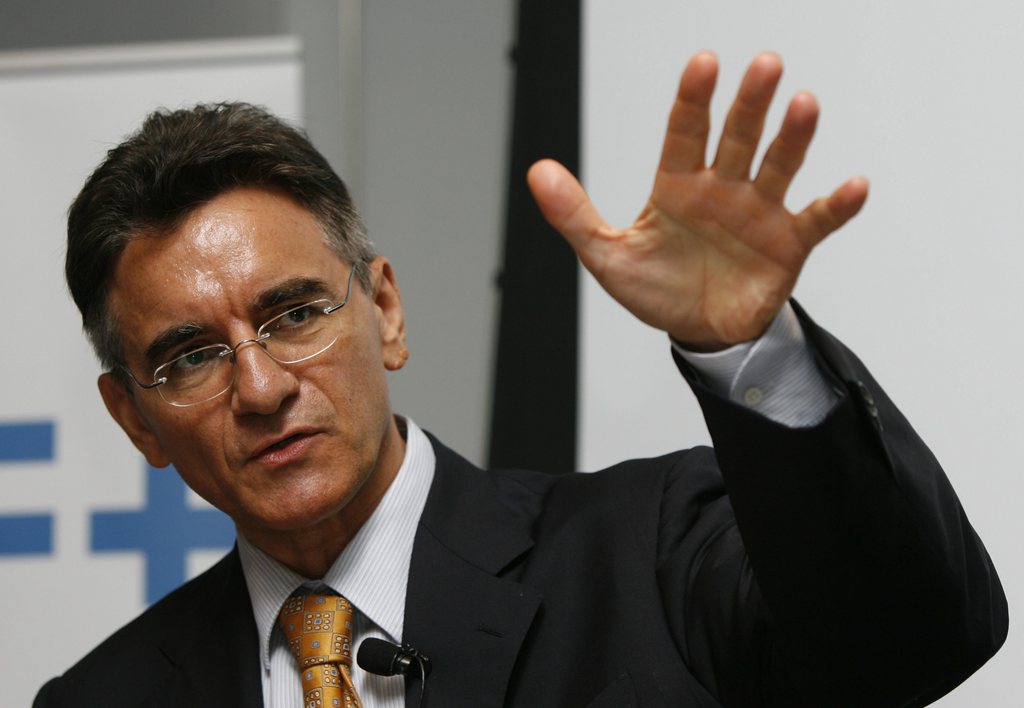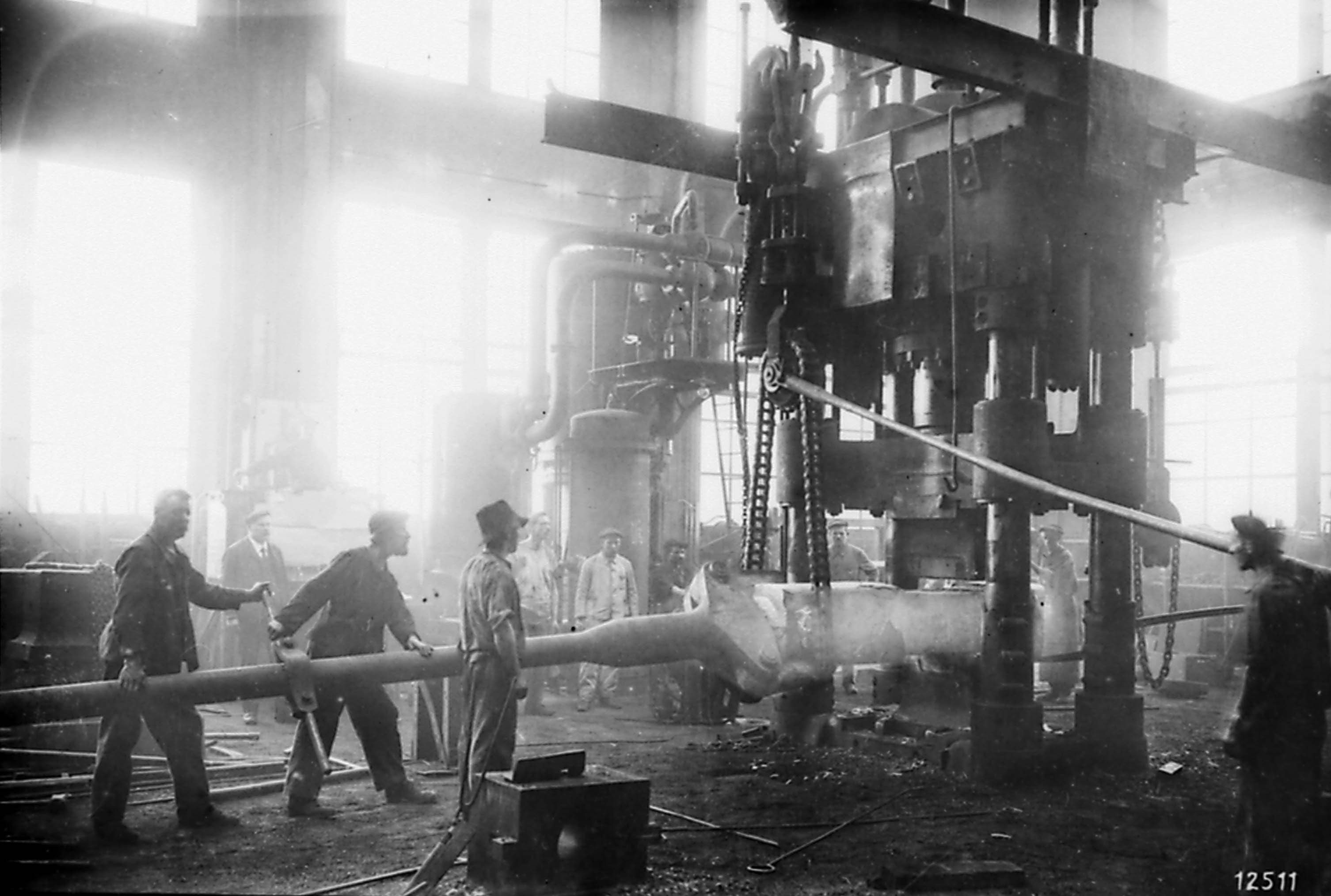Industrial roots hold firm despite strong franc

The increasing cost of Swiss exports abroad coupled with the opening of new emerging markets has tempted, or even forced, some companies to shift manufacturing to other countries.
But escalating fears that Switzerland is being stripped of its industrial base by the strong franc has been downplayed by manufacturers and trade unions despite thousands of recent job cuts and the relocation of production abroad.
The recent rash of production line relocations to more cost effective countries, despite the Swiss National Bank setting an exchange rate floor against the euro, has raised the hackles of some sections of the media and in political circles.
In June, the German owners of biotech company Serono confirmed plans to shut down a key Geneva-based headquarters with the loss of 500 jobs and the relocation of 750 others to centres outside of Switzerland.
Fibre optic cable specialists Reichle & De-Massari opened its new Bulgarian factory in April with the aim of shifting some production away from Switzerland with the loss of around 50 Swiss jobs.
Smaller firms outsourcing
Outsourcing production – or contracting foreign owned factories to produce goods – has provided a cost effective avenue for some small and medium sized enterprises (SMEs) that employ two thirds of all workers in Switzerland but lack the financial muscle to build their own plants.
Consultancy firm Mattig Management Partners has seen outsourcing interest from larger SMEs triple in recent years as the strong franc affected margins, but many do not go through with theirs as a shortage of local skilled workers keeps labour costs relatively high.
“SMEs tend to be surprised that potential partners turn down requests for outsourcing as the volume is too thin or because local cost is higher than anticipated,” Chairman Andreas Mattig told swissinfo.ch.
Three years ago, multinational industrial concern Georg Fischer announced plans to slim down production at its GF AgieCharmilles business unit and concentrate the manufacture of machine tools in China.
The company now produces 80 per cent of its goods abroad, but chief executive Yves Serra said that its Swiss base remains a key element for success.
“We manufacture abroad because customers want us to be close to them and we manufacture products in Switzerland that require a high degree of quality and where it is possible to automatize production,” Serra told swissinfo.ch (see related story link for full interview).
“We want to retain our image as a manufacturer of quality products and a large part of this reputation derives from our presence in Switzerland.”
Jobs at stake
The bald statistics appear to confirm the argument that Switzerland’s industrial base is being eroded. Manufacturing’s share of economic added value has halved from 40 per cent in 1960 to 20 per cent today, while the share of jobs has fallen from 50 per cent to 22 per cent.
This long term trend is largely in line with many other advanced economies. But Swiss economic journalist Beat Kappeler argues that, with the exception of the textiles industry, Switzerland has avoided the fate of Britain and the United States, that have lost vast swathes of production.
“The Anglo-Saxon world has lost traditional industries such as textiles, heavy machinery and white goods (for example, television sets),” Kappeler told swissinfo.ch, explaining that Switzerland has shifted emphasis from mass produced goods to quality niche products.
“We have become stronger in fine mechanical products, watches, luxury goods, and pharmaceuticals. Switzerland is the ninth largest biotech producer in the world. I think we have actually intensified the infrastructure and importance of industry in this country.”
Industrial base intact
The raft of job losses in the last few years has worried trade unions. Some 660,000 people were employed in traditional manufacturing in 2008, according to official statistics, but this figure has sunk by some 30,000 in the last four years despite a rally in the last few months.
However, the ability of firms to specialise in high value niche areas coupled with the strength of the domestic economy has been enough to fend off deindustrialisation, according to José Corpataux, an economist at the Swiss Trade Union Federation.
“Switzerland still has a good industrial base compared to other countries such as Britain, the United States and France,” he told swissinfo.ch. “Deindustrialisation is less of an issue in Switzerland than elsewhere.”
“The strong franc makes it difficult for all industries to compete and if it continues to be a problem then we could see deindustrialisation. But if you have good macroeconomic conditions then companies can still develop.”
Swiss firms were able to exploit favourable economic conditions in the four years leading up to the 2008 financial crisis when manufacturers created thousands of new jobs while cashing in on the boom era.
UBS bank chief economist Daniel Kalt believes the relocation of production is merely a sign of the latest phase in the business cycle. Rather than a sign of deindustrialisation, the measures send out positive signals in his book.
“Even though shifts in production to locations abroad accelerate in phases of Swiss franc strength, they are also indicative of the fact that companies are working on their competitiveness and optimizing their cost structures,” Kalt wrote in a recent UBS publication.
A number of Swiss companies have switched production abroad to escape the strong franc or get closer to customers in emerging markets. Some of the most recent examples include:
On July 2, 2012, US medtech company Greatbatch announced it would close its Swiss sites in Orvin and Corgémont and switch manufacture of orthopaedic devices to the US and Mexico. Some 90% of the 196 Swiss-based employees will be affected.
In 2009, Georg Fischer announced 340 job cuts in its precision tools operation and moved much of its production of machine tools to China.
A year later, fragrance and flavour group Givaudan shut down its Kemptthal in canton Zurich with the loss of 120 jobs and opened a new plant in Hungary.
Last year, electrical parts manufacturer Huber + Suhner said it would move 80 jobs from Switzerland to Tunisia and Poland.
Chemical maker Huntsman announced it would transfer 100 Basel based jobs to “key markets”.
In March of this year, the textiles concern Swisstex announced the closure of its Winterthur facility with the probable loss of 80 jobs, 18 months after expanding its operations in the United States.
The loss of Serono was bad enough for the pharmaceutical/biotech industry in Switzerland, but it could have been worse as only a last-minute intervention by Vaud’s cantonal authorities prevented 1,000 Swiss jobs being shed by Novartis this year.
Production/construction: 1991 1.2 million, 2000 932,000, 2012 977,000.
Manufacturing: 1991 786,000, 2000 625,000, 2012 633,000
Watchmaking: 1991 90,500, 2000 81,000, 2012 106,000
Pharmaceutical: 1991 24,000, 2000 24,000, 2012 38,000
Machine building: 1991 124,000, 2000 94,000, 2012 82,000
Service sector: 1991: 2.1 million, 2000 2.16 million, 2012 2.46 million
Finance: 1991 194,000, 2000 189,000, 2012 210,000
Retail: 1991 304,000, 2000 263,000, 2012 252,000

In compliance with the JTI standards
More: SWI swissinfo.ch certified by the Journalism Trust Initiative



You can find an overview of ongoing debates with our journalists here. Please join us!
If you want to start a conversation about a topic raised in this article or want to report factual errors, email us at english@swissinfo.ch.